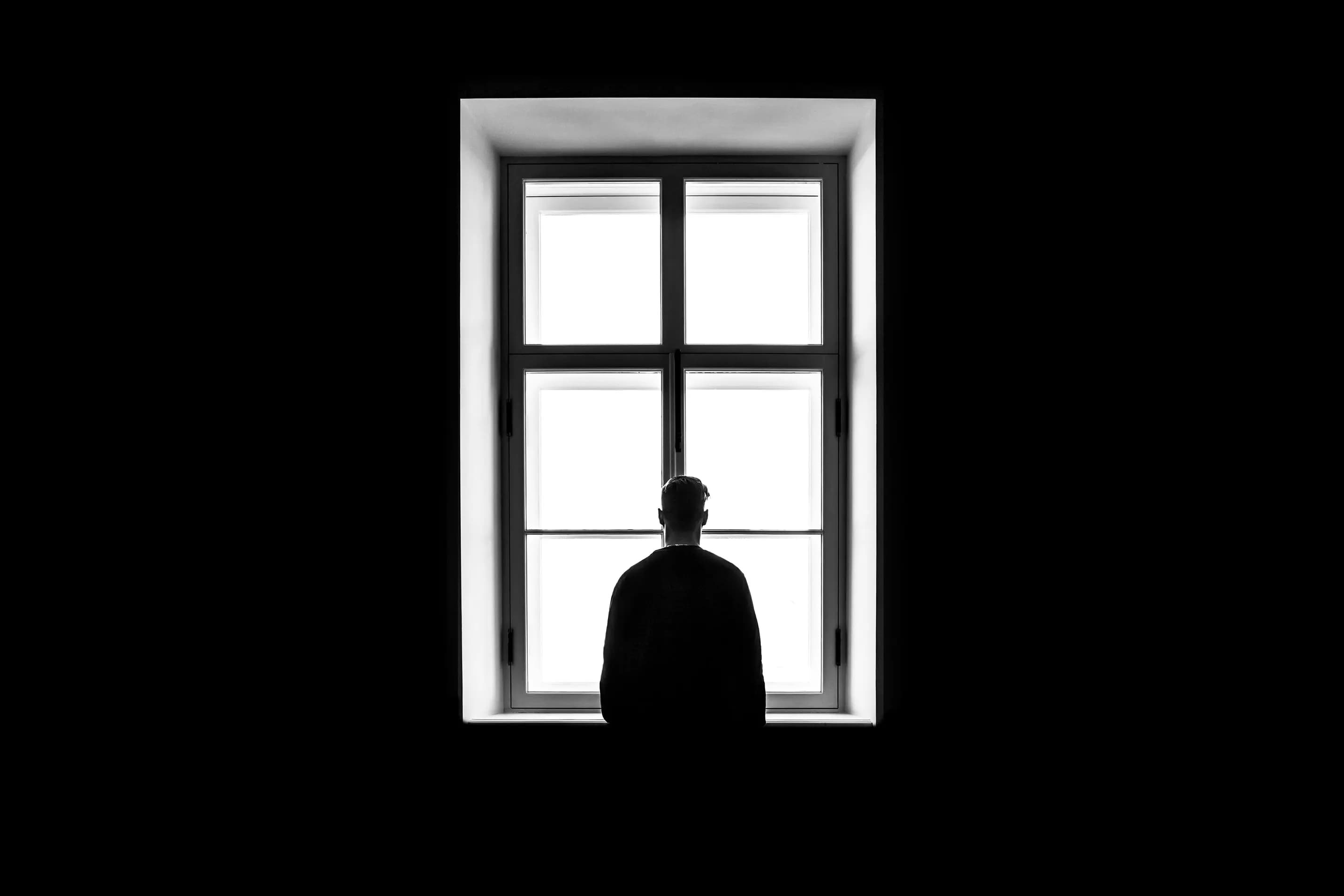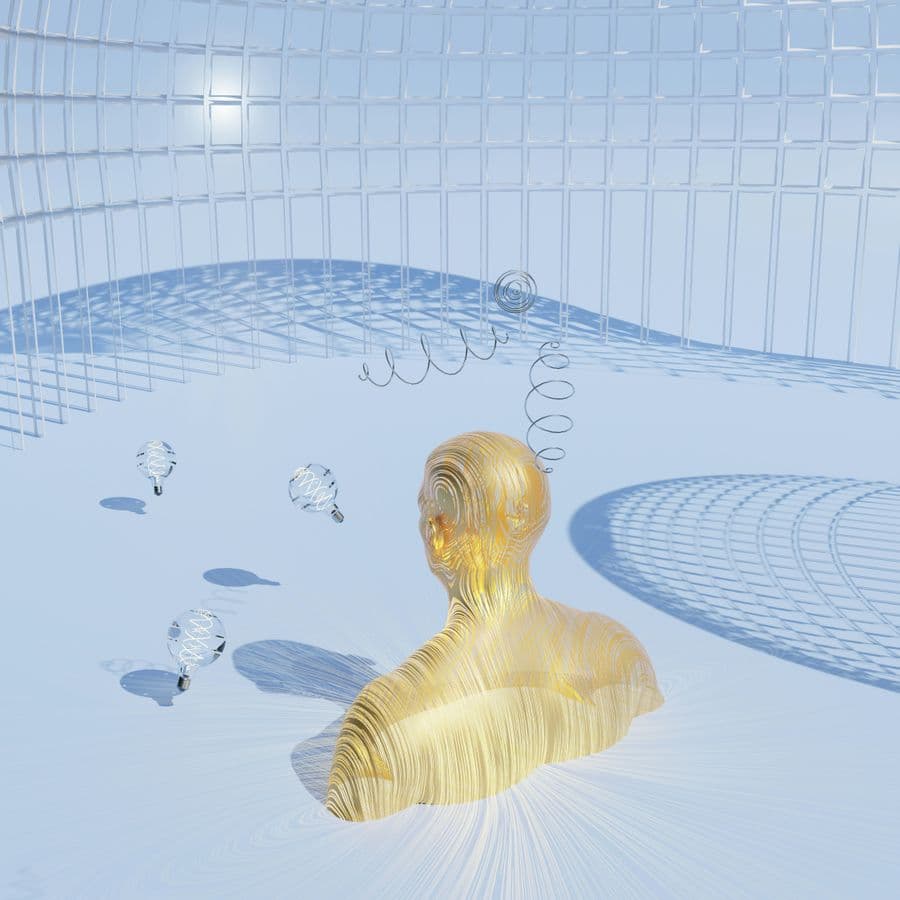
Depression/Feeling Sad
In the depths of depression, Elizabeth Wurtzel's insight resonates: 'If you feel everything intensely, ultimately, you feel nothing at all.' Encapsulating the layers of emotion and numbness encountered in the complexity of depression.
What is Depression?
Depression is a complex mood disorder that causes consistent pessimistic feelings. Depression affects the state of mind and can cause severe symptoms that impact your behavior, actions, and thoughts thus leading to an overall negative effect on your daily life and can cause various emotional and physical health problems.
Individuals with depression normally feel a loss in interest in activities they normally like to do and feel that life is meaningless. Depression goes beyond just prolonged sadness as it is very hard to treat depression as it affects the mind and so just normal medication will not help with getting rid of depressive moods long-term and so alongside medication, therapy is needed in order to help treat depression.
Symptoms of Depression:
Feeling prolonged sadness, misery, feeling empty
Being easily irritable, restlessness, or frustration
Feeling numb
Having a loss of interest in hobbies/activities
Difficulty sleeping (oversleeping or having trouble sleeping at all)
Loss of appetite
Extreme changes in weight
Having less energy and feeling easily fatigued
Low self-esteem and confidence
Physical symptoms such as having headaches, body aches, digestive problems, stomach pains etc.
Suicidal ideation and thoughts of death
In order to be diagnosed the symptoms need to be present for two weeks to be classified as depression.
Depression can feel immensely isolating because there is nothing physically wrong with you, thus people who present with depressive symptoms may not see it as a significant concern, and may ignore the symptoms, assuming they would go away with time.
However, ignoring them can lead to them getting worse over time, impacting how you act and behave, so much so that it starts to impact your life and the people surrounding you.
The Impact of Depression:
Avoiding people and social situations
Have difficulty thinking, speaking, and making decisions
Can cause self-harming tendencies
Rely on alcohol and drugs as a form of escapism
Neglect your personal hygiene
Neglect the people surrounding you
Isolate yourself
Start having difficulty concentrating on things
Have a hard time remembering things
Feel lethargic and weak
Develop other mental disorders such as anxiety
Causes of Depression
Depression can arise from a mix of social, environmental, and biological factors, often interacting in complex ways. Because it varies greatly from person to person, there's no single cause for depression.
Some causes include:
Altering life events
Bereavement
Childhood trauma
State of mind/thought processes
Side effects of certain medications
Medical history
Sleep patterns, diet, and lack of exercise
Use of harmful drugs
Types of Depression
Depression varies from person to person based on the severity of the symptoms, therefore there are multiple types of depression that arise in different circumstances.
Major depression
Also known as clinical depression, major depression occurs when feelings of sadness and low energy persist for more than two weeks. This condition involves prolonged depressive moods, such as extreme fatigue and loss of interest in daily activities, making it difficult to continue with everyday tasks.
Perinatal depression
Perinatal depression occurs in women during or after pregnancy. It affects mood and can cause anxiety, fatigue, low energy, and changes in sleeping patterns. Medication and talking therapies are effective treatments for this type of depression.
Seasonal affective depression (SAD)
Seasonal Affective Disorder (SAD) is a type of depression that occurs seasonally, typically during the winter months when there is limited sunlight and shorter days. People with SAD may experience symptoms such as low energy, irritability, difficulty concentrating, changes in sleep patterns, and feelings of sadness. These symptoms usually improve with the arrival of spring and summer. Light therapy, lifestyle changes, and sometimes medication are commonly used to treat SAD.
Psychotic depression
A form of depression that includes the common symptoms of major depression, such as persistent sadness, fatigue, and loss of interest in daily activities, along with extreme psychotic symptoms. These psychotic symptoms can include delusions (false beliefs), hallucinations (seeing or hearing things that aren't there), and paranoia (irrational fears or mistrust). Psychotic depression requires prompt and comprehensive treatment.
Understanding Depression
Depending on the severity of the depression some people experience depression in different ways such as different genders, ages, and minorities.
Ages:
Children and adults may experience the symptoms of depression in different ways and may present their symptoms differently.
Younger children may be overly clingy and be more easily irritable than experiencing sad moods as they yet to fully understand their emotions.
Adults are more likely to feel sadness than irritability and are prone to experiencing loss of memory more than children/teens. They are also less likely to seek help.
Gender:
Women are more likely to experience depression than men (World Health Organisation, 2023). 1 Approximately depression is about 50% more common in women than in men. Research shows that this may be because of hormonal changes especially during a woman's menstrual cycle, childbirth, pre or post pregnancy period, which in the case of pregnancy can result in postpartum depression due to the vigorous change in hormones.
Depression and Functionality
Some individuals may only experience a few symptoms of depression and so an individual can appear to be functioning normally and be perfectly fine when they present themselves to others but also may be experiencing some symptoms of depression.
This normally takes place in smiling depression or atypical depression, where people around the individual do not notice their depressive patterns and/or the individual themselves do not consider themselves to be experiencing depression.
Related Media:
How to recognize perfectly hidden depression | Margaret Rutherford | TEDxBocaRaton
This type of depression is in the less severe stage and so the symptoms are not as easily noticeable as severe depression.
Ways To Heal
Although antidepressants can be effective in treating depression, they have limitations regarding their long-term impact. Studies have shown that therapy, or a combination of antidepressants and psychotherapy, is considered the most effective approach for achieving long-term improvements in managing depression.
Cognitive Behavioral Therapy (CBT):
CBT is a proven effective approach to treating therapy. This is a type of therapy that challenges negative thought patterns by teaching and reinforcing new ways of thinking and changing the cycle of harmful repetitive behavior that presents itself in depression.
It is based on the idea that depression stems from inaccurate beliefs about oneself and so introducing a new pattern of thinking can put an end to these distorted values. CBT not only changes the way you think but it also uses this new pattern of thought to target negative behavioral responses that stem from these harmful thoughts. Thus CBT effectively challenges you to respond to stressful scenarios. For instance, it can help you stop avoiding situations and people, a common symptom of depression.
Mindfulness Based Cognitive Therapy:
This therapy style combines the principles of CBT and mindfulness meditation to transform your self-perception.
This approach uses techniques similar to CBT, but instead of challenging negative thoughts, it encourages you to recognize their inaccuracy and accept them. By adopting a more objective perspective, you can experience negative thoughts and feelings without falling into a depressive loop. This method helps you accept these thoughts as part of yourself without feeling self-resentment.
Interpersonal therapy:
This treatment approach focuses on identifying and addressing problems within your interpersonal relationships with family and friends.
It stems from the idea that interpersonal conflicts can lead to depressive symptoms. By exploring the your relationships and examining your role in others' lives, this method helps to resolve conflicts. It teaches you how to build a strong support system, which is essential in treating depression.
Tips for Managing Depression:
Talking About It: It may feel uncomfortable at first, but sharing your feelings with a trusted person or therapist can provide immense relief and support. Give yourself time to open up and remember that it's okay to seek help.
Checklist Days: Create a daily checklist to break tasks into manageable steps, from simple routines like preparing and having breakfast to larger tasks throughout the day. Mark off each accomplishment and collect these lists over time to acknowledge your progress and productivity.
Tidy Space: Maintaining a clean and organized environment can positively impact your state of mind. Regularly declutter small areas like your workspace or living space to promote a sense of calm and reduce stress.
Self-Care Routine: Establish a self-care routine that includes activities that nourish your mind and body. This could involve mindfulness practices, practices you enjoy, or simple exercises like walking that boost your mood and overall energy.
How to Support Someone with Depression?
Keep inviting them your plans: Even if they decline, continue to include them. Feeling included and wanted can provide a sense of belonging and normalcy.
Send them a text of encouragement: A personal message can brighten their day and remind them that you care. It shows them they're not alone in their journey.
Remind them of your presence: Sometimes, just knowing that someone is there for them can provide immense comfort. Check in regularly and let them know you’re available to listen without judgment.
Just ask what's the best way you can support them: Every individual's needs are different. By asking directly, you demonstrate your willingness to meet them where they are.
What should I do if I’m feeling suicidal?
Useful contacts/websites:
Mind: https://www.mind.org.uk/
Shout: https://giveusashout.org/ ,
Shout - Text “SHOUT” to 85258 to contact the crisis text line
Childline (under 18): Phone: 0800 111
Samaritans: Phone: 116 123 ,jo@samaritans.org,
Sane: Phone: 0300 304 7000, https://www.sane.org.uk/
Papyrus HopelineUK: PHONE: 0800 068 41 41, TEXT :7860039967









